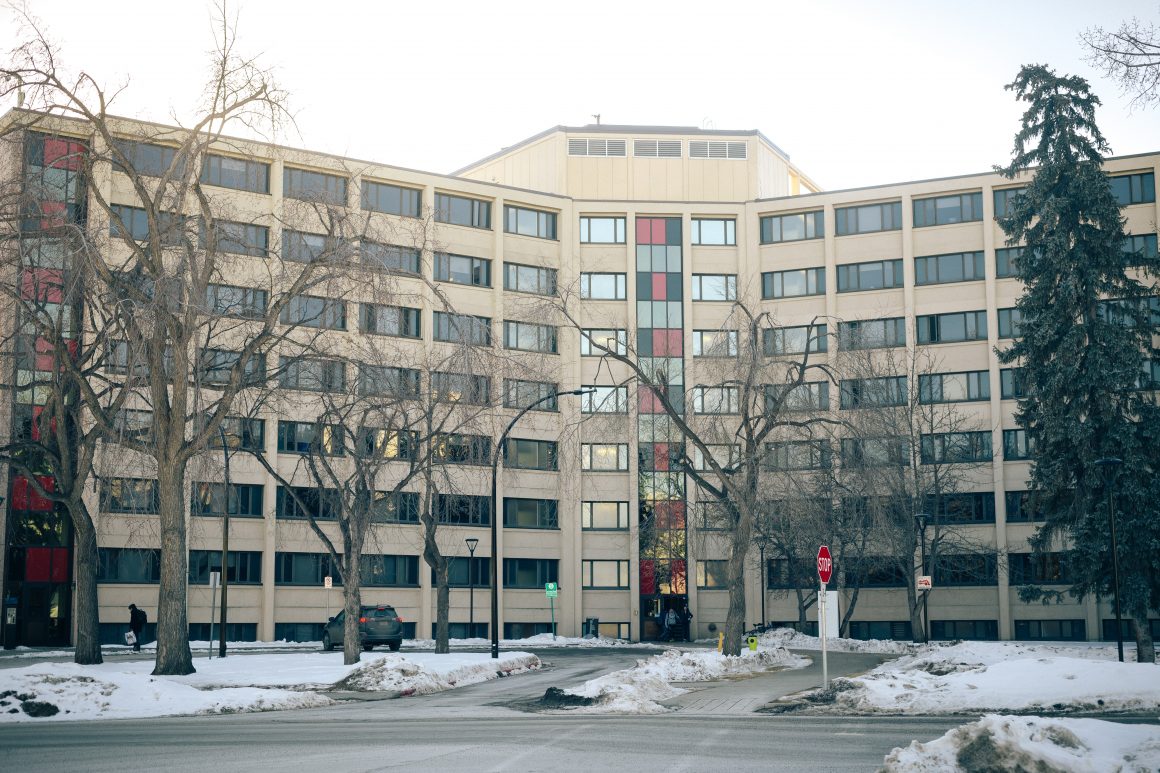
SU calls for university residence property tax exemptions
By Scott Strasser, January 30 2017 —
Last year, every student living in residence at the University of Calgary paid around $255 in property taxes — and the Students’ Union wants to change that.
As part of their municipal advocacy priorities, the SU will push for the city to exempt U of C residence buildings from paying property taxes.

Bray says residence students shouldn’t have to shoulder property tax payments // Photo by Zarif Alibhai
SU vice-president external Tristan Bray presented the union’s municipal mandate to Students’ Legislative Council on Jan. 17. Among the SU’s lobbying priorities is a call for the city to expand property tax exemptions to include post-secondary residence buildings.
Bray argued that because residence buildings are part of a public post-secondary institution, they should be exempt from property taxation.
“By taxing residence, that cost gets passed on to students living in residence,” Bray said. “It’s money coming out of students’ pockets.”
The city currently taxes U of C residence services hundreds of thousands of dollars per year. According to residence services associate director Randy Maus, the value of taxation equalled $693,000 in 2016.
“It is part of our expenses, just like any other residential property. It’s part of operating the property, like lighting, heating and furniture,” Maus said, adding that residence services often appeals their property tax assessments. “It’s not just the U of C’s issue, it’s an issue for all our colleagues as well.”
There are roughly 2,700 U of C students living in residence. Each paid about $255 to account for property taxation in 2016.
Residence Students’ Association president Kendra Toth said the RSA supports the SU’s lobbying initiative.
“It’s something that affects multiple institutions in Alberta and it would be extremely positive to see the U of C lead the charge on this issue,” Toth said. “It is also powerful to have a major issue that the RSA, SU and residence services can and will work on together.”
Toth added that the money saved by not paying property taxes could go towards upgrading older residence buildings.
Bray said most provinces in Canada do not charge property taxes to post-secondary residences.
“I know [British Columbia] isn’t allowed to charge this tax,” he said. “It’s not consistent across Canada. Some provinces allow it, [but] those provinces are in the minority.”

Maus said residence services supports the SU’s lobbying initiative // Photo by Scott Strasser
Property taxes — both residential and non-residential — are a main source of the city’s revenue and account for more than 40 per cent of Calgary’s annual operating budget.
Property tax assessments in Calgary are based on a property’s value rising or falling in a given year. A property’s tax bill increases or decreases based on how the assessed value changes relative to the average change.
Recent years have seen increases in Calgary’s property tax assessments for both residential and non-residential property owners. In 2016, small business owners in particular saw large increases in how much the city taxed them.
“From my conversations with current sitting councillors, they’ve said the city needs this money [and] this revenue. They can’t afford to stop charging it,” Bray said.
According to the City of Calgary website, the city will exempt property taxes to organizations “based on the belief that the use of the property or business returns a sufficient community benefit to society earning the relief of tax obligations.”
The SU will lobby their municipal priorities to city council candidates before the October 2017 municipal election. Bray hopes candidates will be more aware of the property tax issue.
“It’s on our municipal priorities document to get it onto city council candidates’ minds,” he said. “And hopefully show Calgary city council candidates the student side of this tax.”
Maus said residence services supports the SU’s lobbying initiative.
“We’ve been hoping to get property taxes removed for some time,” he said. “As you can imagine, $693,000 is a significant amount of money. If we can reduce our expenses by that much, have additional revenue to enhance the residence experience, maintain facilities or provide additional programs — that’s huge.”
